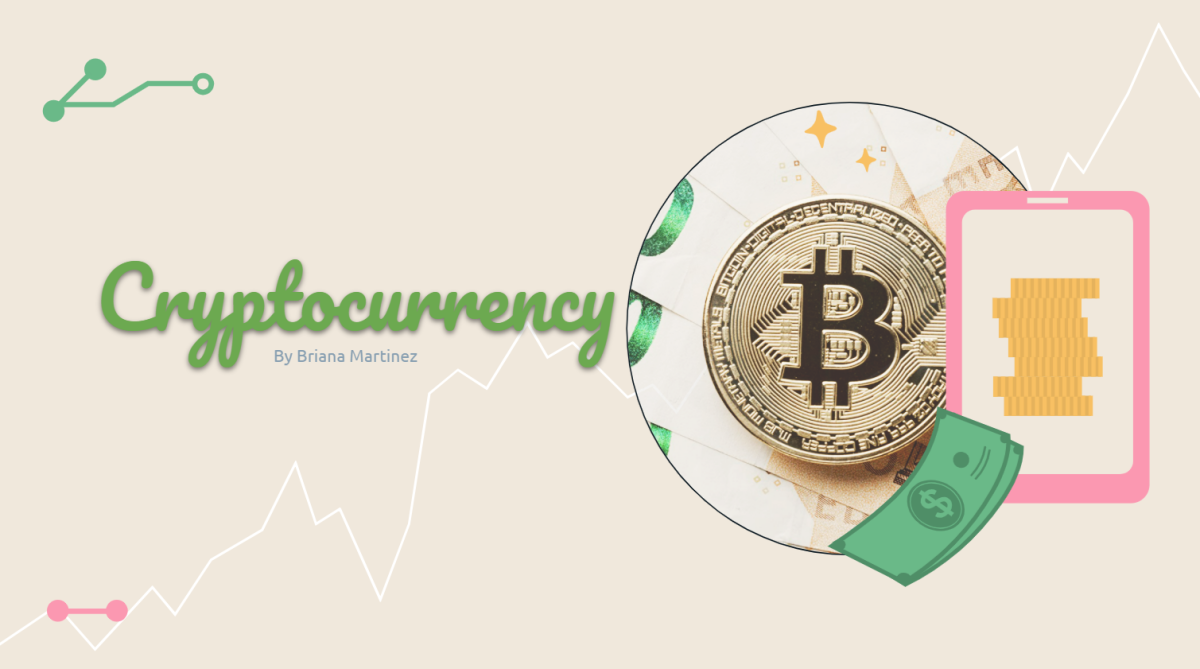What is Cryptocurrency?
Cryptocurrency, in its simplest form, is just digital currency. It’s secured by something called blockchain, which is a ledger, or collection of transactions, available for everyone to see and makes it difficult to counterfeit since it’s distributed across a network of computers.
Basically, it’s like buying something from a store except everyone in a system with a computer can see your receipt, and anytime anyone else buys from the store, a copy of their receipt is also visible through every computer. If one of the computers changes any information on your receipt, it’d get cut off from the network, and your receipt would remain the same since other computers in the system have their own copy of the original.
In reality, blockchain is being used for things like fund transfers, Non-Fungible Tokens (NFT’s) and even food supply chains to keep track of suppliers, not random customer’s receipts, so there shouldn’t be any concern from consumers in that aspect.
The security provided by blockchain technology gives people peace of mind that their currency will not be stolen or counterfeit, both things that are important when it comes to digital currency.
If you’ve seen NFT jokes on social media, you know what I’m talking about. In fact, blockchain technology is what maintains an NFT’s value. The purchase of an NFT is recorded and the new owner of the token gets to say they own it, but people can still right-click and save the content that was paid for. NFT’s are a whole other thing with a whole set of issues that people have, so we’ll leave it at that for now.
It all seems pointless and you might be wondering how crypto gained its worth. In this article, I will be talking about Bitcoin specifically since it’s the most popular type of cryptocurrency right now.
What makes Bitcoin valuable?
Right now, one Bitcoin is worth $65,200 U.S. dollars. I don’t know about y’all, but that’s more than my family’s annual income. To help digest the idea of crypto, think of it as a limited resource.
People like gold, diamonds, and limited edition items because they are often scarce and difficult to come by. At the end of the day, gold and diamonds are rocks that come from the literal Earth and limited edition items are never a necessity, but their scarcity is what makes them so valuable. In order for anything to retain its value, people have to trust it will retain its value.
If you have a digital file that represents a dollar, there’s nothing stopping you from copying that file as many times as you want to get more money, right? Wrong. This is why blockchain is important. It prevents the “Double Spend Problem,” which is the risk that digital currency will be spent twice. Since crypto is decentralized, no single person or organization owns or controls the flow of the currency. It prevents corruption, mismanagement of money, and takes away control from the government, which can technically prevent you from accessing your accounts at any time.
Bitcoin is a form of money that no bank or government can control and is an alternative to the current monetary system we have, so individuals have full control over their holdings.
Can you even buy regular stuff?
Yes! More and more retailers are accepting bitcoin to make a transaction. Microsoft, AT&T, Twitch and Expedia are all merchants that accept bitcoin, but there is a long way to go until more people begin to use cryptocurrency as their main form of payment.
I think people don’t fully understand how bitcoin can be accessed and don’t trust in intangible currencies because it almost doesn’t even feel real. Our credit and debit cards work because we exchange real paper money so that our banks issue that balance into a card that we can use almost anywhere. We’ve always had a middleman between the party paying and the party getting paid and crypto completely eliminates that middleman.
Personally, I don’t think people will accept cryptocurrency until they are educated about it and believe it’s better than our current system. Not everyone is going to like the idea for a myriad of reasons, but the world doesn’t wait for anyone. The dollar amount of one single bitcoin should tell you that.
Many people have issues with the idea of embracing digital currency, but many are enticed by the promise of economic freedom, making this debate worth some more research for each person to decide.
































